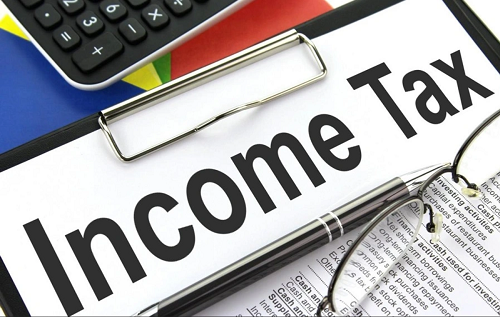Tax is an obligation and responsibility of an enterprise to the country in which it is operating and it absolutely includes company income tax. So what is company income tax? What to pay attention to about company income tax?
In this article, Farovietnam would like to share some information about company income tax for businesses.
What is company income tax?
This is a direct tax calculated by basing on the taxable income of the business according to Circular 78/2014/TT-BTC. Specifically, the income tax is as follows:
Income from production and trading of goods and services
-
Income from capital transfer or real estate transfer
-
Income from property ownership, rental or disposal
-
Income from interest on bank deposits, loans, provisions, foreign currency sales
-
Income from non-performing loan which has been erased but now be claimed
-
Income from debt that the business has to pay but now the creditor cannot be identified
-
Residual income from previous years or production and business activities that are not located in the territory of Vietnam

The obligatory criteria to pay company income tax include:
-
Enterprises are established and granted business registration certificates in accordance with the enterprise law in the form of private company, partnership company, Ltd.company with one member, Ltd.company with two or more members, joint stock companies, and other organizations.
-
The enterprise has a business registration certificate in accordance with foreign laws.
-
Public or non-public units established in accordance with Vietnamese law.
-
Organizations with business activities
What should businesses pay attention to about company income tax?
For this tax, businesses need to focus on the following issues:
- The revenue in the calculation formula and whether the revenue (a.1.1) and income tax (a.1) include VAT. In case VAT is counted in the abatement so the revenue for calculating CIT does not include VAT while VAT directly is paid by VAT, it means that the revenue for calculating CIT includes VAT. Besides, suppose that the customer pays in advance for many years, the amount can be distributed according to the prepaid year or determine whether a one-time payment is okay.
- Legal provisions in other fees or not businesses can look up information such as:
+ Expenses that are not deductible according to clause 37, Article 4 of Circular 96/2015/TT-BTC
+ Other income according to clause 23 in Article 7, Circular 78/2014/TT-BTC and Article 5 Circular 96/2015/TT-BTC
+ Tax-exempt income according to clause l 12, Article 8, Circular 78/2014/TT-BTC and Article 6 Circular 96/2015/TT-BTC.
Current company income tax finalization procedures do not require to submit monthly and quarterly declarations, but obligatorily to determine the amount of CIT incurred in the quarter and then temporarily pay it to the local State Treasury or through a bank. That means that enterprises are still temporarily paying money, but remove the quarterly tax declaration procedures.
The period to complete quarterly CIT obligations is allowed no later than the 30th day of the quarter which the tax liability is born. The enterprise submits the CIT finalization dossier for the previous year to the tax sub-department directly managing it. If the enterprise has a fiscal year that coincides with the calendar year from January 1, 2021 to December 31, 2021, it shall be no later than March 31, 2022 of the following year. If the enterprise has a fiscal year other than the calendar year, within 03 months from the end of the fiscal year.
The above information about company income tax which Farovietnnam has summarized and concisely summarized for companies, businesses and accounting personnel to quickly and efficiently conduct tax finalization. If businesses have challenges about the tax finalization process, payroll administration or recruitment, human resource consulting, please contact Farovietnam's hotline.